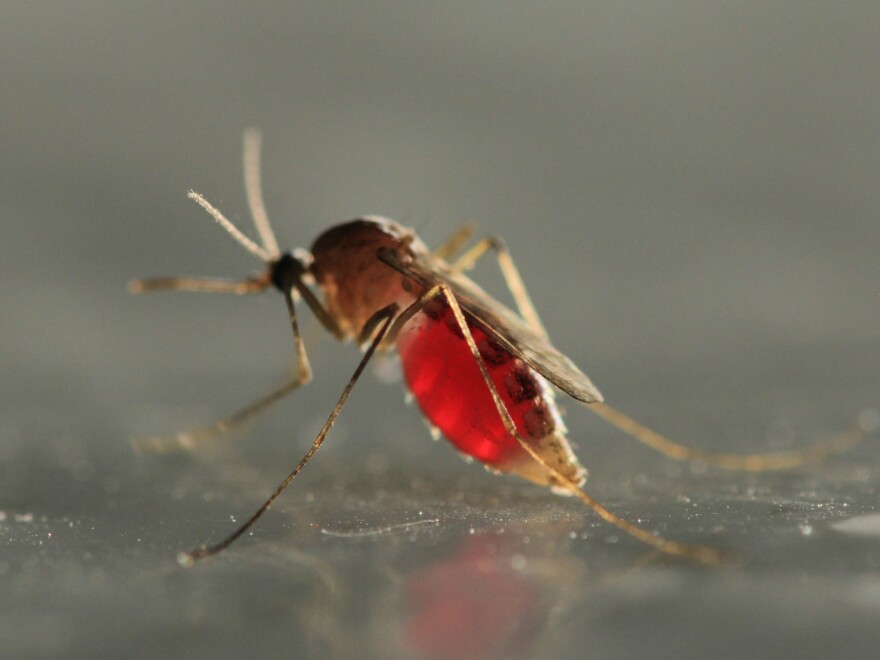If you own a horse, the veterinarians at the Vermont Agency of Agriculture are urging you to vaccinate your animal for two mosquito-borne illnesses: Eastern Equine Encephalitis (EEE) and West Nile Virus (WNV).
“This is the time of the year when horse owners should be consulting with their veterinarians to ensure that their horses are appropriately vaccinated for EEE and WNV,” said Dr. Kristin Haas, Vermont State Veterinarian. “A horse’s susceptibility to EEE and WNV infection is not linked to travel to shows, fairs or other commingling events. We know that both viruses are present in Vermont, so even horses that spend the majority of their time on isolated properties are susceptible and should be vaccinated.”
State Veterinarians warn EEE is a mosquito-borne, viral infection that can cause severe neurologic disease in horses, with mortality rates approaching 100%.
State Veterinarians warn EEE is a mosquito-borne, viral infection that can cause severe neurologic disease in horses, with mortality rates approaching 100 percent. Although horses are the animals most susceptible to EEE, the virus can cause disease in other mammals such as llamas and alpacas and in emus. In all animals, the onset of clinical signs is generally three to ten days after a bite by an infected mosquito. Mammals infected with EEE most commonly exhibit neurologic signs including ataxia or incoordination, inability to stand, limb weakness or paralysis, seizures and death, while infected emus often develop hemorrhagic diarrhea.
According to the State, West Nile Virus presents similarly to EEE in horses, although West Nile signs are often less severe, and the mortality rate is generally lower than with EEE infection.
Although the state says vaccination is the most effective tool for preventing EEE in horses, owners may also protect their horses from infection by using an insect repellent and barriers such as fly sheets and face nets. Changing out water troughs regularly and removing other items that hold water will help to reduce mosquito breeding areas.
Mammals infected with EEE and West Nile Virus are dead-end hosts, meaning that they generally are unable to transmit the diseases to other animals or to people. In Vermont, animal cases of EEE and West Nile Virus are required to be reported to the Office of the State Veterinarian. There is not currently a vaccine to guard against EEE or West Nile Virus in humans.





